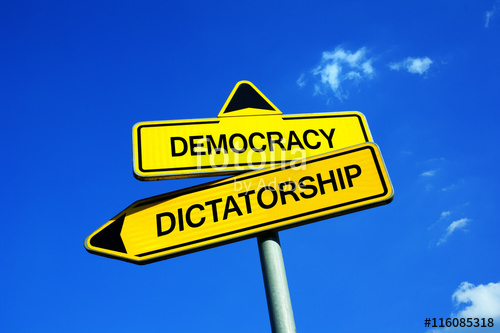What links the late Idriss Deby’s Chad to Egypt and India

/ TAKE UP ONE IDEA

“Too often…we enjoy the comfort of opinion without the discomfort of thought”
– John F. Kennedy
The death of Idriss Deby, president of Chad for the past 30 years, renews the focus on electoral autocracies, which are sustained and flourish with the support of western countries.
Deby – and modern Chad’s story – is quickly told. The 68-year-old strongman died of wounds sustained during a battle between his troops and rebels, according to the army. His death came at a particularly untimely moment – he had just won re-election for a sixth time, with an astonishing 79.3 per cent of the vote. Fighting broke out after the April 11 election. His 37-year-old son, Mahamat Idriss Deby, will now run the country.
But the broader point about Chad – and Deby senior – is that it is allied with the US and France. The late president was seen as an ally in the fight against jihadism in the Sahel. France quickly mourned “a courageous friend”. If there is outrage over democratic backsliding across west and central Africa, the West is being awfully discreet.
So too with Egypt. In the past six years of Abdel Fatteh El-Sisi’s presidency, the so-called “Hollywood” of the Middle East has extended thought control to alarming levels. From late 2018, the state affiliated Egyptian Media Company has made clear that almost no production company other than its very own Synergy Production will be able to produce soap operas. Thus, Egypt’s famous soaps have become more tame and predictable. For instance, they show relatively few poor people as well as very rich ones and they don’t allow criticism of police and government officials and so on.
That’s just one example of President El-Sisi’s campaign to crush critical debate in his country. Even so, the West, which sees him as an ally in the campaign against Islamist extremism, as well as in Libya, continues to pay court and play ball. Egypt receives more than one-billion dollars in annual US military support. France sells arms to Egypt. The European Union is Egypt’s biggest trade partner. In September 2020, two months after post-Brexit Britain launched a new sanctions regime that would see it acting as a “force for good”, Boris Johnson spoke to Mr El-Sisi on the phone and welcomed a “strong partnership” with Egypt.
Finally, there is India. Last month, Freedom House said India was only a “partly free” democracy, which means it is on a par with Ecuador, Albania and Malawi. It was also in March, that Swedish institute V-Dem announced India ceased to be an electoral democracy in 2019 and had become an “electoral autocracy”. It shares that status with Mali, Kenya and Hungary.
The western response to this is interesting. Even though US president Joe Biden publicly said that strengthening democracy would be a central pillar of his foreign policy, his administration doesn’t seem to mind working with an electoral autocracy in the fight against China.
The so-called Quad—America, Australia, Japan and India—is supposed to be established democracies that offer an ideological contrast to China. That it includes India, which is backsliding on the democracy front, suggests the US is being pragmatic. As usual.
Let’s not be naive. Geopolitics demands that countries pursue common interests with imperfect partners. However, there is a point at which western tolerance for and acceptance of electoral autocracies can start to look like a feature not a bug.

